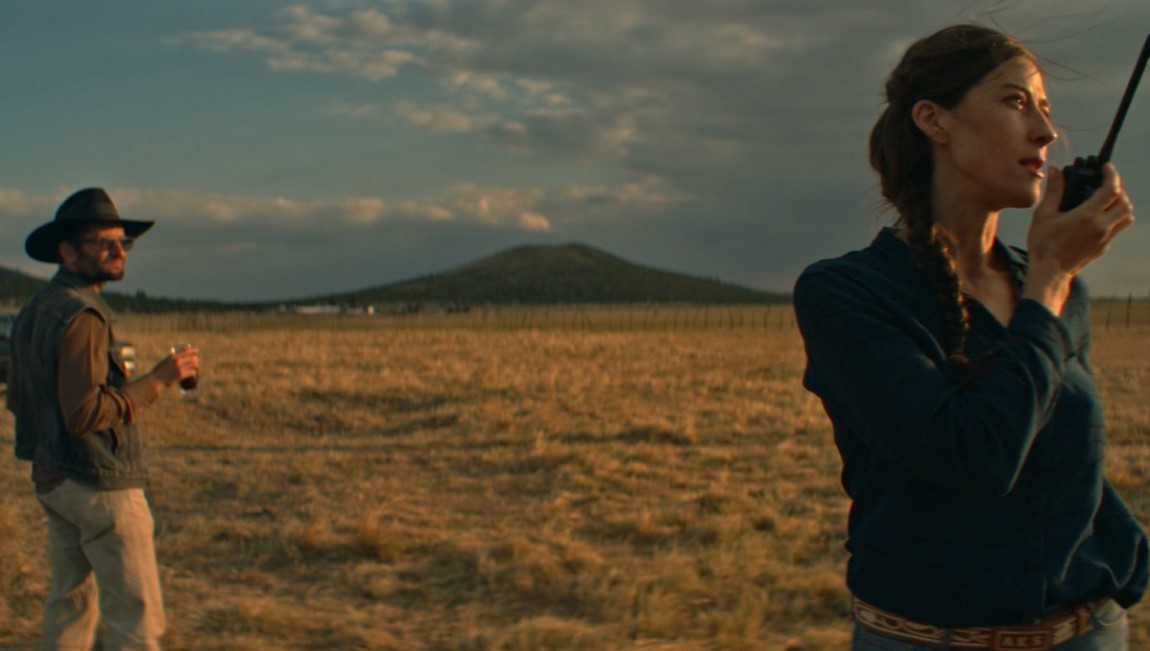Carlos Reygadas, the provocateur of Japon and Battle in Heaven, seems to have finally matured. Some might argue that he took a step forward with Silent Light; others (me) would call that one second-hand Dreyer, a series of borrowed poses and attitudes and fake epiphanies. And the less said about Post Tenebras Lux, the better. With Our Time, though, Reyagadas has constructed a fully realized work that speaks to real emotional truths, while still leaving ample room for his odd proclivities and his unique sensibility. It’s a major work, in other words. The film has a straightforward narrative — the gradual dissolution of a marriage — but not a simplistic one. Reygadas complicates this scenario in various ways: he takes an epistolary approach, devoting large swathes of screen time to voiceovers that recite written letters, emails, and text messages. Reygadas also casts himself and his own wife and children as the main characters of Our Time.
It’s a fascinating schism, rupturing the film’s form into a kind of dichotomy between fiction and documentary. Reygadas is ‘playing’ Juan, husband to Esther, who’s played by Natalie Lopez, Reygadas’ wife and collaborator. The film is set on and around the grounds of Reygadas’s actual home, a cattle ranch outside of Mexico City. The whole thing is intellectually playful, in a Borgesian sense. In the narrative proper, Esther embarks on an affair with a visiting rancher named Phil, causing friction with her husband. Juan insists that he is fine with the arrangement itself, since they are essentially in an open marriage, but he’s angry that Esther has kept the affair from him. Juan veers from intellectual smugness to jealous rage to stage managing his wife’s affairs, and all this suggests that, just maybe, the ‘real’ Reygadas is working out his own feelings on this subject. Ultimately, Juan’s arrangement with Esther crumbles as he constantly confuses his own narcissism for emotional altruism. Reygadas portrays Juan as needy and pretentious, and it is an extremely unflattering, even self-lacerating performance. Far from any kind of ego trip, Reygadas instead implicates himself in his own macho fantasies, while allowing Esther/Natalie the space to become her own actualized character/person.
As director, Reygadas, working with cinematographer Diego Garcia, uses precise framing to capture tentative, furtive movements; there’s a constant push-pull between tossed off, almost improvised actions and the film’s more purposeful structure, as it narrows in scope from a large community, full of workers and children and social gatherings, to basically just two characters, and then ultimately leaving people behind all together in a somber, poetic epilogue. Are love and monogamy the same thing? Are they even compatible? Reygadas doesn’t seem to know, and has made an entire film dedicated to the difficulty of navigating this thing we call relationships.
Published as part of June 2019’s Before We Vanish.







